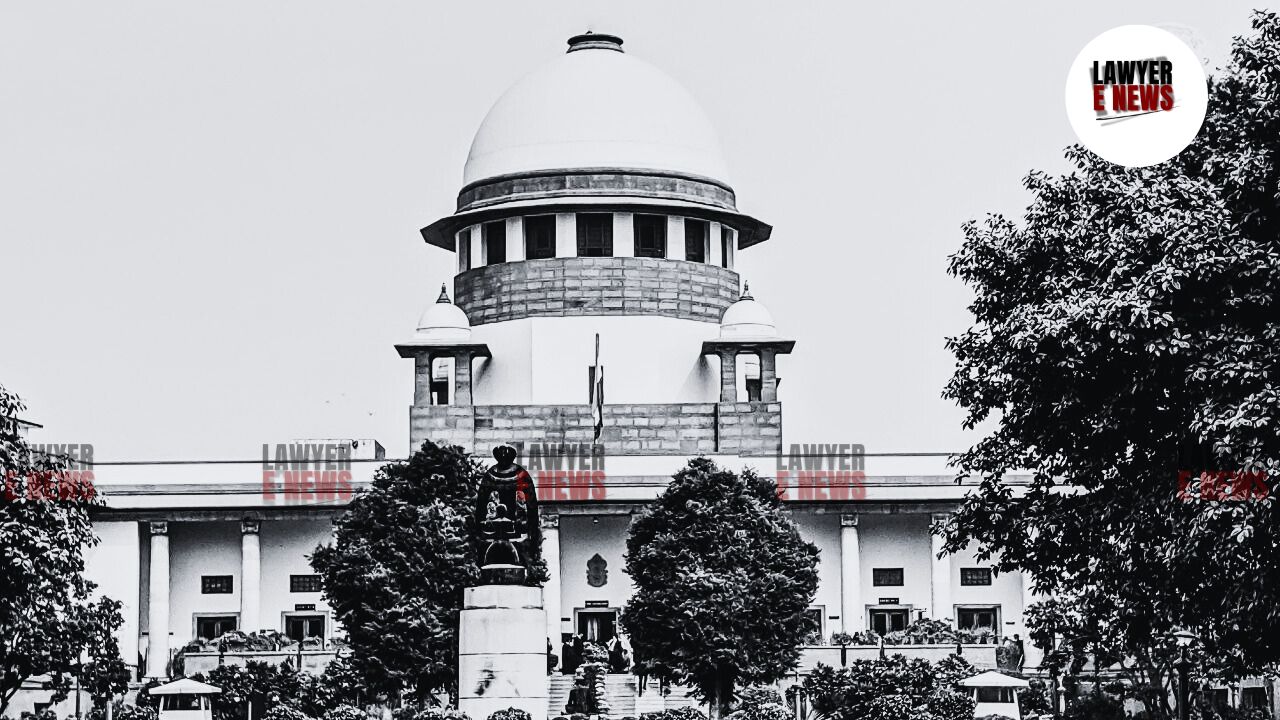-
by Admin
15 February 2026 5:01 PM



Supreme Court has dismissed a contractor’s appeal seeking damages for employer-caused delays, holding that the limitation of liability clause (Clause 49.5) in the General Conditions of Contract (GCC) was enforceable. The Court ruled that the contractor, having repeatedly invoked Clause 49.5 to obtain extensions of time without protest and having expressly waived claims beyond escalation, was estopped from challenging its validity.
Justice Abhay S. Oka, delivering the judgment, observed: "The appellant acted upon Clause 49.5 and sought extensions of time on multiple occasions. Having accepted the stipulation, it cannot later claim damages for delay. By its conduct, the appellant is estopped from challenging the validity of Clause 49.5."
An agreement dated June 28, 2012, was entered into between M/s. C & C Constructions Ltd. (appellant) and IRCON International Ltd. (respondent) for constructing five Road Over Bridges (ROBs) in Rajasthan. Due to alleged delays attributable to IRCON, the appellant sought extensions of time, which were granted under Clause 49.5 of the GCC. However, the contractor later sought damages for delays, which IRCON rejected, citing the limitation of liability clause.
The arbitral tribunal rejected the claims summarily under Section 16(2) of the Arbitration and Conciliation Act, 1996, on the ground that Clause 49.5 explicitly barred such claims. The Delhi High Court upheld this decision under Sections 34 and 37 of the Arbitration Act. The present appeal before the Supreme Court challenged the High Court's ruling.
Enforceability of Clause 49.5
The Supreme Court examined Clause 49.5 of the GCC, which provided: "In the event of any failure or delay by the Employer/Engineer in fulfilling his obligations under the contract, then such failure or delay shall in no way affect or vitiate the contract or alter the character thereof; or entitle the Contractor to damages or compensation thereof but in any such case, the Engineer shall grant such extension or extensions of time to complete the work, as in his opinion is/are reasonable."
The Court ruled that the appellant had accepted this clause when seeking extensions of time and had even submitted written undertakings that it would not claim anything beyond escalation. The Court noted: "The appellant explicitly undertook on January 14, 2015, that it would not make any claim other than escalation for delays in completion. Two years later, it sought damages, contradicting its own solemn undertaking. Such conduct estops the appellant from challenging Clause 49.5."
Public Policy and Contractual Freedom
The appellant argued that Clause 49.5 violated Sections 23 and 28 of the Indian Contract Act, 1872, by restricting legal recourse and being against public policy. The Supreme Court rejected this contention, stating:
"Limitation of liability clauses are recognized under Indian law and have been upheld in previous rulings of this Court. Such clauses do not violate public policy unless they completely oust the jurisdiction of courts, which is not the case here."
Further, the Court pointed out that the appellant had not raised this argument before the Single Judge or the Division Bench of the High Court. Hence, it could not be raised for the first time in the Supreme Court.
Scope of Judicial Review Under Section 37 of the Arbitration Act The Supreme Court reaffirmed the limited scope of judicial review in arbitration matters, citing Larsen Air Conditioning and Refrigeration Co. v. Union of India, (2023) 15 SCC 472 and Konkan Railway Corp. Ltd. v. Chenab Bridge Project Undertaking, (2023) 9 SCC 85. The Court held:
"Interference under Section 37 of the Arbitration Act is even narrower than under Section 34. Courts cannot undertake an independent assessment of the merits of an award but must only ascertain whether the arbitral tribunal exceeded its jurisdiction."
Since Clause 49.5 unambiguously barred the claims, the arbitral tribunal was correct in rejecting them at the threshold under Section 16(2) of the Arbitration Act. The Delhi High Court, in upholding this view, did not exceed its jurisdiction under Section 37.
Dismissing the appeal, the Court concluded: "Considering the limited scope of interference, as laid down by this Court, we find absolutely no merit in the appeal, and the same is accordingly dismissed."
Date of Decision: January 31, 2025
